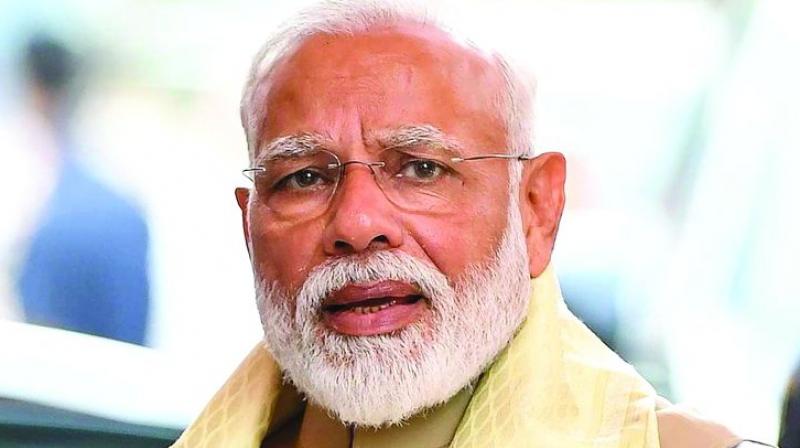Let’s wait for PM ideas for 2nd term to unfold

Prime Minister Narendra Modi, addressing his newly-elected MPs on Saturday, made a clutch of promises or commitments. The most significant of these, from which others flow, is an extension of an earlier, well-known and well-remembered, but unmet, promise of “sabka saath, sabka vikas”.
To this, the PM has now added “vishwas”, or trust. Thus, the new coinage is “sabka saath, sabka vikas, sabka vishwas”. The question naturally arises: Is Mr Modi really planning to build a new house — a “new India”? Is he about to turn over a new leaf?
Some scepticism is in order. If the new slogan is pursued in right earnest, the BJP will begin to resemble the Congress, moving away from its RSS moorings. This is because the expression which denotes “trust” is, in essence, the compact of a secular state with its citizens. By definition, in a secular state, all citizens have equal value. However, the idea of a secular state is anathema to the BJP-RSS.
Indeed on May 23, the day of the verdict, at his party's headquarters, the PM made fun of secularists and decried secularism in his speech to thank party workers. But he praised the Constitution, full throttle. This is a contradiction in terms. However, ordinary people will be interested in the PM’s real goals, for which policy instruments are put to work. Here the formula of Jayaprakash Narayan serves us well. JP had enunciated that any government should be given 100 days in which its opponents should withhold criticism. This is to give an incoming government leeway to get used to its surroundings and formulate its ideas and begin work on them.
In Mr Modi’s first term, governance was at a discount. There is an approximately four per cent drop in economic growth in the past five years (if the revised yardstick for measuring growth is kept in view) in spite of a favourable global economic climate, in contrast with the hostile international environment his predecessor Manmohan Singh had to suffer. The 130-odd schemes of direct benefit to the poor, of which BJP leaders speak, barring a few, arouse scepticism, not unlike the so-called “Gujarat model of development” that was spoken of five years ago, but later came to attract ridicule. Addressing his new MPs, the PM spoke of “balanced development” in the country — again something which belongs to the Congress era since the early years of Independence. It is a good idea, indeed a necessary one, if development is to be dispersed to all parts of India and to all sections of society. Mr Modi’s new-found emphasis is laudable and fits with his current view that “not only those who voted for us are ours, but also those who sharply opposed us”. Before judging, we should give the government at least a hundred days.

